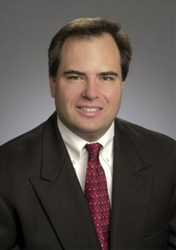
Chicago, IL (PRWEB) September 30, 2014
California Gov. Jerry Brown (D) on Tuesday signed SB270, a bill that bans single-use plastic shopping bags. The law takes effect on January 1, enforced against stores that are at least 10,000 square feet. All smaller stores will have to comply starting in 2016. Customers who don’t bring their own bags will be charged 10 cents to use in-store paper bags instead.
The following statements from environmental and budget policy experts at The Heartland Institute – a free-market think tank – may be used for attribution. For more comments, refer to the contact information below. To book a Heartland guest on your program, please contact Director of Communications Jim Lakely at jlakely(at)heartland(dot)org and 312/377-4000 or (cell) 312/731-9364.
________________________________________
“California’s plastic shopping bag ban is only the latest of environmentally harmful restrictions ironically imposed in the name of environmentalism. Consumers widely reuse plastic shopping bags for many different types of uses and recycle them at the end of their use. The term ‘Reduce, reuse, recycle’ is a perfect description of how people use plastic shopping bags. Coercing people to use cloth shopping bags will subject people to unnecessary health risks caused by festering bacteria from prior food purchases contaminating newly bought food. The only way to avoid this is to wash the cloth bags after every use. The environmental consequences of this will be more water depletion in a largely arid state and more detergents polluting waterways.”
James M. Taylor
Senior Fellow for Environmental Policy
The Heartland Institute
jtaylor(at)heartland(dot)org
727/215-3192
________________________________________
“Bans on plastic bags are bad for the environment, bad for the economy, and bad for consumer choice. When people have the option, they choose plastic bags for convenience, durability, resistance to weather, and reusability. Studies show that most people reuse plastic bags.
“Plastic bags are made in the U.S., whereas 95 percent of ‘reusable’ alternatives come from overseas, primarily China. Thus, plastic bag bans ship jobs overseas. In addition, so-called reusable bags use much more energy, water, and toxic chemicals in their creation. They would have to be reused more than 100 times just to save the energy used to create a plastic bag – which is often used more than once.
“Bag bans are a bad idea.”
H. Sterling Burnett
Research Fellow, Environment & Energy Policy
The Heartland Institute
Managing Editor, Environment & Climate News
hburnett(at)heartland(dot)org
800/859-1154
________________________________________
“The ban on plastic grocery bags may not be the worst piece of legislation California Gov. Jerry Brown will sign this year, but it is among the most obnoxious. Combine crony capitalism and liberal condescension with pious environmentalism and a callous disregard for the Golden State’s embattled manufacturing sector, and you have an apt description of this new law.
“Every policy has unintended consequences; this new law is no different. One obvious consequence will be the return of paper bags, which cost more to make and certainly leave a larger carbon footprint, if you fret about such things. Another effect: The new law will cost California 2,000 manufacturing jobs. The governor should have bagged this bill when it crossed his desk.”
Ben Boychuk Policy Advisor
The Heartland Institute
bboychuk(at)heartland(dot)org
818/389-2931
(Ben Boychuk is a resident of Southern California.)
________________________________________
“It’s good to see that Gov. Brown has his priorities straight. California’s horrendously stagnant economy will now take off like a rocket, establishing universal opulence, now that the state’s landfills will be reduced by an infinitesimal amount.”
S.T. Karnick
Director of Research
The Heartland Institute
skarnick(at)heartland(dot)org
312/377-4000
________________________________________
“The single-use shopping bag is a miracle in modern food safety. Without it, people would have to reuse bags and risk transferring dangerous pathogens from one shopping trip to the next.
“The amount of oil used to make a shopping bag (mostly natural gas actually, according to American Plastic Manufacturing) is minuscule, and well worth it, especially now that America has an overabundance of natural gas thanks to fracking technology.
“Ironically, the same people opposed to plastic shopping bags are also opposed to the use of genetically-modified crops. Food Democracy, for instance, would have you believe we’re going to save the planet by banning plastic shopping bags and GMO crops, when the fact is that the majority of American farmers who plant GM crops use far less fuel than their organic neighbors.
“As a wise organic farmer once said, ‘We ask for too much salvation by legislation.’ By banning plastic shopping bags, California Gov. Jerry Brown is pandering to an urban sect of anti-GM, pro-organic activists who don’t know the first thing about farming, food processing, or safe food handling.
“Californians will pay a huge price both in terms of the cost of carrying their groceries home and the cost to their health if this ban sticks.”
Mischa Popoff
Policy Advisor
The Heartland Institute
media(at)heartland(dot)org
312/377-4000
________________________________________
“California continues to be a state in which more and more of its citizens are seeing their free-choice rights restricted in countless ways. The state’s system of excessive taxation has already driven thousands to move elsewhere. The ban on the use of plastic bags is just one more example of overreach and the liberal inclination to control every aspect of people’s lives.
“The notion that plastic bags pose a danger to the environment is a bow to radical environmental groups like the Sierra Club and others who are devoted to undermining the nation’s economy, the use of fossil fuels, and all forms of manufacturing. The notion that this nation is ‘the land of the free’ is being eroded.”
Alan Caruba
Founder, The National Anxiety Center
Policy Advisor, The Heartland Institute
acaruba(at)aol(dot)com
312/377-4000
________________________________________
The Heartland Institute is a 30-year-old national nonprofit organization headquartered in Chicago, Illinois. Its mission is to discover, develop, and promote free-market solutions to social and economic problems. For more information, visit our Web site or call 312/377-4000.
Leave a Reply